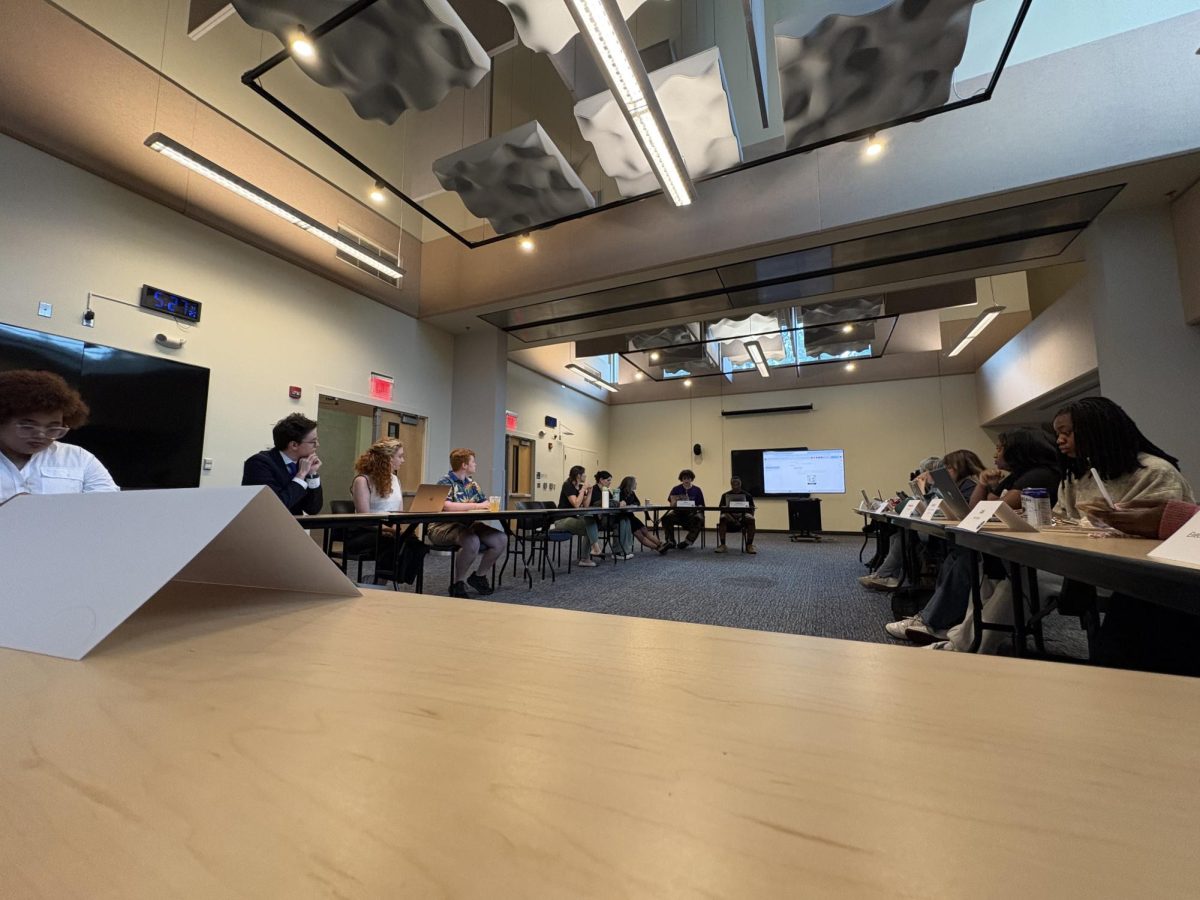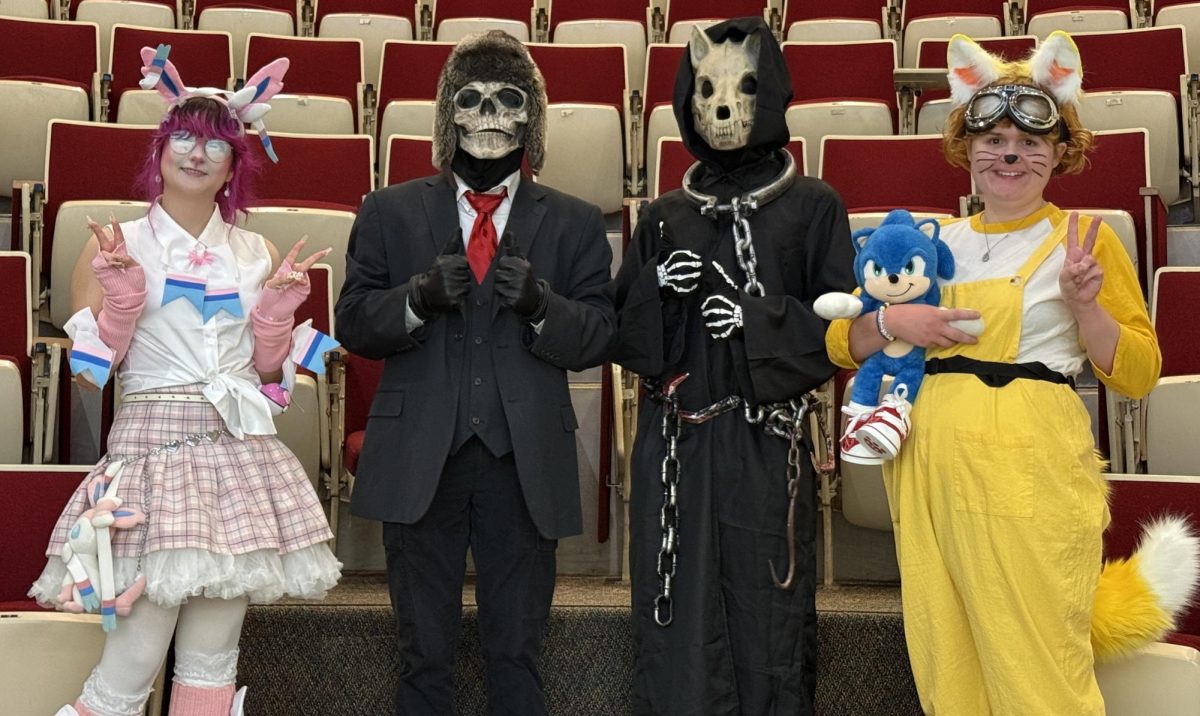Auburn Petty – Multimedia & Design Editor – [email protected]
Sexual assault victims can find solace in services provided by Buncombe County’s crisis intervention and prevention agency, Our VOICE.
“Connecting people to our services, whether they be survivors of sexual violence themselves or simply someone who can be a support for others, is key to what we do,” said Danny Lee, Our VOICE’s volunteer coordinator.
Our VOICE offers multiple services to sexual assault survivors, such as free counseling and access to a crisis line.
“We have a 24-hour crisis line that is available to any survivors of sexual assault,” said Leah Rubinsky, the client services coordinator. “It’s available for any kind of supportive listening or crisis situation that a survivor may have or need.”
Because each survivor’s experience with sexual assault is different, there is not a set formula for the crisis line, Rubinsky said.
“It’s important to note that every case is totally different,” Rubinsky said. “In every call, first and foremost, it’s about being present with the caller and listening and being there with them for everything that they need. That’s the thing that happens in every call.”
United Way routes calls for Our VOICE, directing calls to the volunteers. When a call comes in, United Way contacts a crisis response advocate with the victim’s contact information, Lee said.
Lee said Our VOICE receives a report every three months, indicating what sort of calls were handled.
“The report captures trends in calls made to the line. Though it can be difficult to determine what trends there are, we do know that calls made to the Crisis Line correlates with the efforts in outreach that we put out into the community throughout the year,” Lee said. “From the reports, we see a total number of incoming calls in a month, also outgoing calls and average time for a response.”
The most recent report shows statistics from last July to December, reporting a total of 93 callers. Lee said this number is low.
“We sort of had a lull here with our outreach. I do know that after we do outreach, or if we do an event that gets our name out there like Walk a Mile in Her Shoes, we’ll get a lot of clients that way,” Lee said. “It’s really about how we’re doing with outreach, not how many assaults are happening. Those are happening. It’s just a question of whether people know about us.”
Lee said normally, Our VOICE receives 20 to 30 crisis calls per month, but numbers dropped in November and December to 7 and 9 callers, respectively. The average response time – the time it takes for a volunteer to connect to a survivor – peaked at
4.52 minutes in July, but that time dropped to .89 minutes during the lull in December.
Our VOICE aims to increase awareness, so survivors know they can turn to the agency in times of crisis, Lee said.
“To increase awareness of our services, we flyer in the community, attend speaking engagements, throw various fundraising events such as Walk A Mile (or the) Survivor Art Show,” Lee said.
In 2011, there were 1,942 reported cases of rape in N.C., according to the N.C. Department of Justice. Of those reported, only 561 cases resulted in a conviction.
“Rape and sexual assault are grossly underreported crimes everywhere. Whatever data we have is expected to fall short of the high numbers of crimes that are actually occurring,” Lee said.
There are plenty of reasons a person may not want to report sexual assault, according to Rubinsky.
“It could be because sexual assault is one of those issues where, unfortunately, there are a lot of myths out there,” Rubinsky said. “Sexual assault myths around different people ‘deserving’ sexual assault because of the clothing that they’re wearing, because of an activity they were doing, like drinking or using substances, or being in a certain place at a certain time.”
The myths surrounding sexual assault cause victim-blaming in our society, Rubinsky said.
“The thing that I try to stress is that those are myths that need to be dispelled because it creates this idea that the victim is responsible for what happened to him or her. It takes away the responsibility from the perpetrator,” Rubinsky said. “The fact of the matter is, no one has the right to sexually assault anyone else. It doesn’t matter if the victim was drinking. It doesn’t matter if the victim was on drugs. It doesn’t matter if they were in a short skirt.”
Lee said he aims to increase outreach and awareness within the Buncombe County community in order to connect with more victims.
“The more we connect with our surrounding community, the more we let them know that we are out here, the better the chances are that someone will come to us for help,” Lee said. “There are a lot of survivors out there who feel alone and like they don’t have a support system that they can rely on to help them to heal. We want people to know that they aren’t alone, that they deserve adequate care, deserve to be believed, deserve justice and deserve healing, that healing is possible and there is a community that supports that.”
Categories:
Crisis hotline receives fewer calls
April 3, 2013
0
More to Discover


















